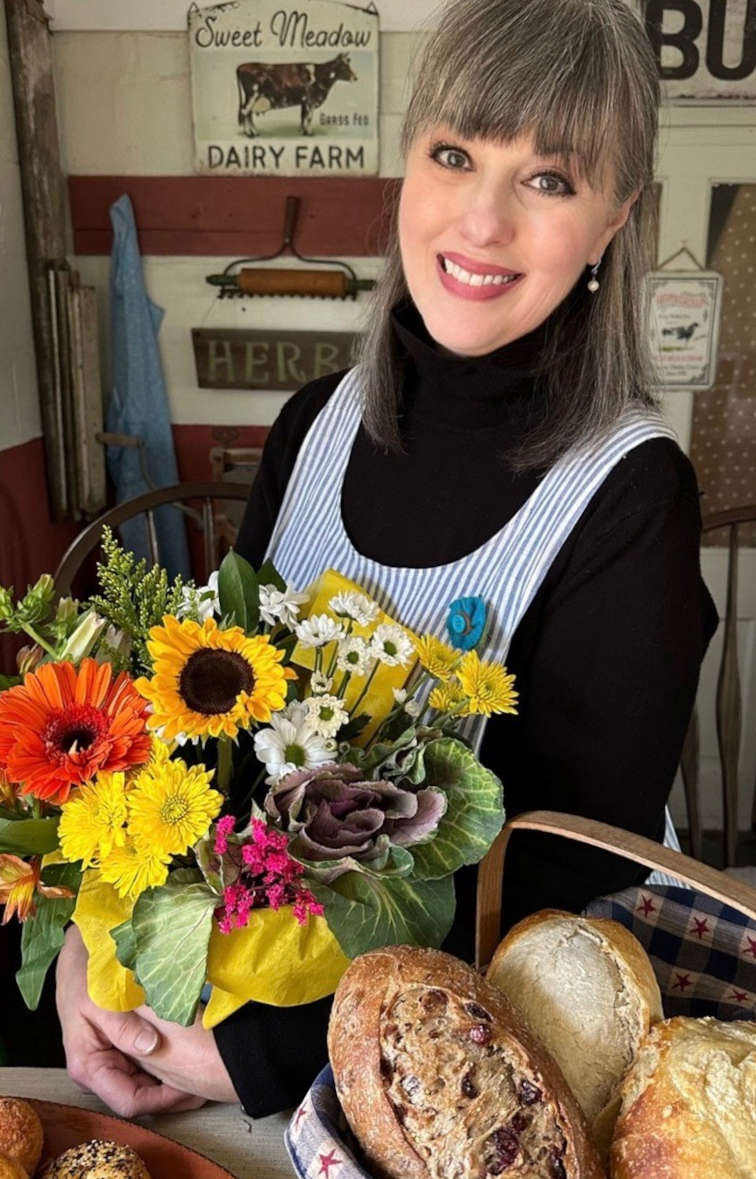“When chickens get to live like chickens, they’ll taste like chickens, too.”
-Michael Pollan, The Omnivore’s Dilemma: A Natural History of Four Meals
Bacon. It is my weakness. You may wonder why I have a quote about chicken as an introduction to this post–but we’ll get to chicken later. Right now I have bacon on the brain. In recent years, bacon has become a kind of fad–chocolate covered bacon, bacon scented cologne, bacon salt, bacon cookies, bacon martinis, bacon t-shirts; I do, in fact, own a pair of knee socks that say in large block letters up the shin: BACON.

A trendy bacon cupcake












Alexandra,
You have "hit the nail on the head" – we ARE omnivores, but we don’t need to be ridiculous and we DO need to make sure the "critters" we eat have been given the best life that they can have for the type of critter they are. The DH & I practice what we like to call "sustainable omnivorism" – lots of veggies, but when we eat meat it has come from a source we know about.
Well done!
Good morning. I enjoyed your post. I lived on a farm one summer when I was a little girl (8 or 9 yrs. old) and saw the lady there kill a chicken on Saturday for Sunday’s lunch. After that I have always said I wouldn’t eat what I’ve seen walking, lol. But nowadays, I think I have changed my mind. The bad part is I don’t live on a farm so I won’t have to put it to the test. I have great admiration for farmers and am glad that more people are becoming more concerned about where our food comes from and what is is it. I try to eat only fresh or frozen foods, not processed with chemicals and preservatives in it. I add my own herbs and spices. Thanks for your essays. I really enjoy them.
I agree one hundred per cent with your view. I learned a while back not to name the "food" critters…..actually, my spouse, in no uncertain terms, requested that I not name them….apparently my strong man felt a little tug about that issue as well….lol. There is nothing like your own home grown food source, whether meat or vegetable. So with that!…..and a repeated….don’t name the food critters!…thanks so much for your continued musings of the farm life. Blessings in All of Your Endeavors.
Thanks for this, Alexandra. I have big ideas for my new yard (my new rental) to become an urban mini-farm. I’ve started garden beds. But I might inherit a neighbors pet chickens, which I promised not to eat. But if I get more chickens, I do want to eat them. And then there are rabbits, which make great worm food and fertilizer. But I’d like to eat them too, except i’m like you. A friend told me she’d never eat anything she had named. My problem also. But I appreciate your experience with the chickens. I would probably cry too, but I am a meat eater. I also try to only eat local, organic, free range/grass fed (depends on the critter.) It’s expensive. I ordered a quarter beef. If I could find free range piggies (as it were), I’d order some too.
I listened to the audio book Farm City: The Education of an Urban Farmer by Novella Carpenter. They raised various livestock and she talked about killing geese and chickens and rabbits that she knew, and how she looked at that process, and how she felt about it.(A great book.)
So maybe I will think of more chickens and rabbits. I could even not name them, if I try hard. And I could cry, too.
Thanks for sharing your life with us, it’s entertaining, and helpful.
As much as I don’t want to eat any meat whatsoever, I find myself craving the protein (from chicken) every few months. (This doesn’t happen with beef – no desire whatsoever). So I’m a sometimes-omnivore with a serious aversion to eating any animal I’ve ever actually known. And thus I totally resonated with this post and thank you very much for taking the time to write it.
I understand your system and applaud your care for the animals you eat. In 1997, I became a kosher vegetarian and haven’t missed eating meat at all. Substitutes can be found in soy chicken, beef, ham, sausage, seafood, and yes, even bacon. I enjoy yogurt, cheese, some milk products, eggs from pastured chickens and honey from local beekeepers. My veggie friends and I don’t eat anything that would cause a critter to die. We’re blessed to live in the San Francisco Bay Area where there are many vegetarian and vegan restaurants so we don’t have to spend frivolously on a $15 veggie/pasta meal. Knowing where your food comes from and how it’s grown or raised are very important aspects of our diets. It can’t help but improve our health. Thank you for sharing your stories.
I found a super easy bacon recipe that you might enjoy. "Pig Candy" – simply dip bacon pieces in melted chocolate – dark or milk chocolate, whatever your preference. MmmMmmmmmm 🙂
I’m a part-time meativore. Love veggies, most fruit and meat a few times a week. My occupation: cattle rancher 🙂 I was raised on venison and it is still my first love.
What a coincidence that your article comes on our first full official season of raising our own turkeys and chickens. I can’t agree with you more that the taste and texture are superior to market meats. I will say however that our first flock of meat chickens that went to slaughter left me bittersweet, i just loved to see them mingle with each other and enjoying the outdoors, but when we sit down to a meal of roasted chicken, I thank them for providing us a delicious meal and I feel good knowing they were raised in clean, happy surroundings.
Congratulations on being able to kill and roast one of your own! I’ve got of our own homegrown roosters in our freezer from last September… ( They were the fellas we didn’t plan on in our backyard flock ) We paid 5:00 each to slaughter them and I’ve yet to be able to cook them… I loved em too much to eat em I guess…I’ve got some farmgirl growin’ up to do! LOL Great post!
Deb ( MJF Beach farmgirl blogger)